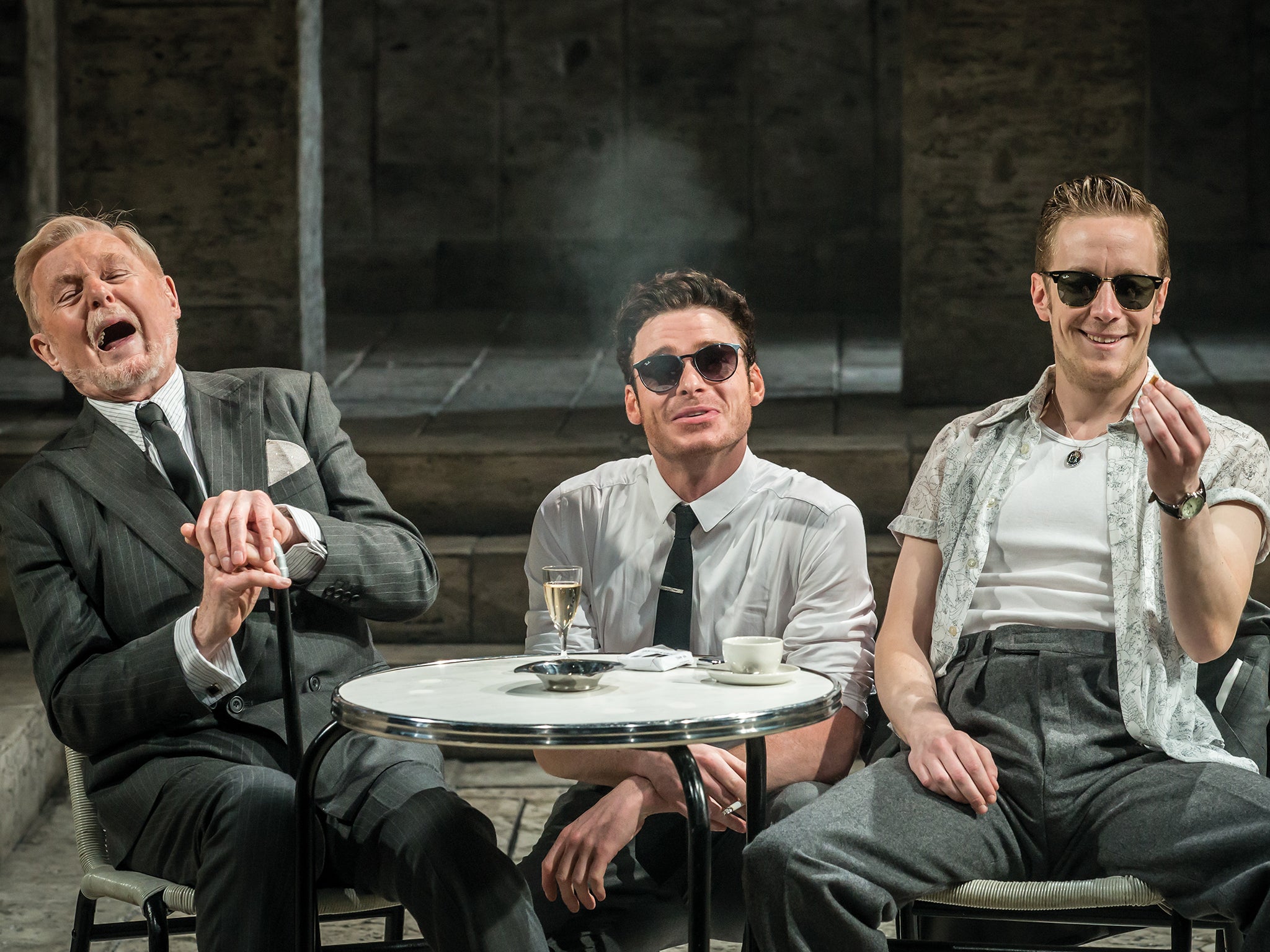Romeo and Juliet, The Garrick Theatre, London: Teenage high drama, but Kenneth Branagh’s show never plumbs the full depths of tragedy
The setting of 1950s Verona is mucho, mucho Italiano, but it also proves an effective backdrop for the star-crossed lovers

Kenneth Branagh, film director, gave Lily James and Richard Madden their happy ever after in Cinderella; as theatre director, he tears them apart in Romeo and Juliet.
The pair power through with appropriately teenage high drama, but the show never plumbs the full depths of tragedy. Madden, best known as Robb Stark in Game of Thrones, has hot-headed eagerness and swagger but not much subtlety, brashly bashing out his lines. I also found myself thinking, probably more times than is ideal, what an idiot Romeo can be. James, as in most of her roles from Nina in The Seagull to Natasha in War and Peace, has an immensely watchable, winning quality, a mix of guileless, passionate optimism and limb-twisting, teenage awkwardness. It's a perfect blend for Juliet, although as the tragedy charges towards its inevitable end, her lines blur as she tremulously brims over (and over).
There’s a bright freshness to their initial attraction, rather than dangerous electricity – and although they got some big Hollywood snogs in, Branagh’s direction keeps them curiously apart at first: during the balcony scene (more of a floor-level terrace), Madden peculiarly spends much of the scene with his back to his love. Branagh does, however, nicely inject some humour: Juliet’s giddiness is, in part, due to the champagne bottle she’s necking. Drunk in love indeed.
Later, as death ominously hovers, things remain luscious rather than gritty, as one comes to expect with Branagh; tombs are beautifully lit, death beds shrouded in clouds of white lace. It's romantic, not raw.
There are interesting directorial stamps, however. Mercutio is no young gun: played by Derek Jacobi, he's a camply dapper, sarcastic and lascivious older gent, given to soft-shuffling, stick-twizzling little dances and urbane witticisms served up with a “boom boom”. When this hits after “ask for me tomorrow and you shall find me a grave man”, we're moved by the pathos of the tic. Does his age lessen the impact of Mercutio’s death? No, actually, although it is more clearly a genuine accident here, the sparring between a young man and an old tease never intended to go so far.
The Friar, conversely, is youthful, but ardent and serious in all the ways Romeo is hormonally hasty; the part is excellently played by Samuel Valentine. Meera Syal is flirty and funny at first as the nurse, but it strikes hard how fair-weather a friend she really is.
Meanwhile, Michael Rouse as Juliet’s father gives a performance that would blister paint off the walls. His rash insistence that Juliet marries Paris may grow from grief, a loss of control for a man used to exerting it, but it spirals rapidly; the moment when, bending his daughter to his will he ends up straddling her, is skin-crawling.
The action is set in 1950s Verona, and it’s mucho, mucho Italiano: there’s a lot of clichéd “ciao”-ing and stereotype-trading matriarchal shouting. But it also proves an effective backdrop: there’s a whiff of Mafia machismo, a sense that la dolce vita is undercut with an ever-present threat of violence. There may be a stylish glamour to the ladies’ wide skirts and the men’s sharp suits, but café culture is also quick to erupt into a brawl. There are occasional anachronisms – some pumping house music for the Capulets’ ball – and the set of grey concrete-looking columns and steps is a little drab. But Branagh’s Verona largely persuades as a steamy setting for these star-crossed lovers.
Join our commenting forum
Join thought-provoking conversations, follow other Independent readers and see their replies
Comments
Bookmark popover
Removed from bookmarks